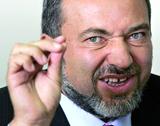This trial was supposed to be different. The first trial of Saddam Hussein was a circus.
[...]
Next up, though, was the Anfal trial, the genocide campaign against the Kurds in 1988, that saw over 100,000 Kurds killed, many with poison gas, thousands more imprisoned, whole villages wiped off the map.
This would be a serious trial, there was to mass graves, forensic evidence, diagrams, the whole bit. Dujail - whatever - that was a dress rehearsal. Now this would be a proper court case.
The new judge, Abdallah al-Ameri, a Shiite, presided over a very different court. With Barzan gone, everyone was a bit quieter. The new defendants didn’t mouth off as much and Saddam - mostly - kept a low profile. Everyone was polite.
Among the journalists it was a welcome change, though it meant we had to pay more attention to the witnesses for our story and less to the antics of the defendants.
At the end of the every session, though, the judge would usually give Saddam or one of the other defendants a chance to talk - and Saddam would make some pronouncement like if he was still in charge the country, it wouldn’t be such a mess.
So then the grumblings started, from the prosecutors of all people, one even burst out in court that the judge was being too sympathetic to the defendant.
Bit shocking really, I mean not telling someone to shut up and sit down all the time isn’t being sympathetic. Besides, maybe being allowed to mouth off every now and then kept the defendants a little more passive.
They’re going to hang them anyway.
So the next session, the angry prosecutor was relegated to a back seat and that was that.
Except for one little off hand comment that very few people heard.
One of the witnesses described how he sent to a petition to Saddam to find out what had happened to his family. When it came to his turn to question the witness (defendants get to question the witness, it’s bizarre), Saddam said, if I was such a dictator, why were you allowed to appeal to me?
It was a pointless question, and enraged the witness, so the judge decided to calm things down, and said (dismissively) to Saddam “no, you weren’t a dictator, sometimes it’s just the people around one that make one seem to be a dictator.” Perhaps sarcastic? Whatever it was, it was offhand.
Everyone had it in their notes, but only AP passed it on to their desker and then that became the top of the story.
Just to back up a bit, the way the wires cover the trial - since we have to be filing information throughout - is that we take notes and then periodically send them from the press room to our editors (via Yahoo Messenger, as it turns out). Back at the office, there is a desker who receives the quotes and the description and then writes the actual story.
I’ve done both ends and the simple formula is, find the quote, and the fact or two that will make an attractive interesting story. Basically you need two or three quotes from the unhappy witness (my family was gassed, I saw the dead bodies, and then they beat us some more, whatever) and the Saddam quote. There is always one good quote from him every trial and it usually leads the story, unless there is a something particularly awful described in court like a rape or a child dying.
Those who don’t follow this callous (was that a whiff of evil?) formula, will find the next day that the newspapers have chosen the competition’s articles get chosen.
So the word came down the line, “AP’s leading with a dictator quote, do you have it?” So the other wires, went back through their notes (and perhaps maybe, in exasperation, asked the AP guy) and dutifully delivered up the requisite quote.
And where the wires go, the rest of the media will follow. It doesn’t matter what the other TV, newspaper reporters saw or heard, their editors will be sitting there looking at the wire copy that came out during the trial, saying “do you have the dictator quote?”
And of course the Iraqi media, follows the wires as well.
So that was the story the next day, not about the Kurds who suffered, or how well run the trial was, but that the judge thought Saddam wasn’t really a dictator.
For two days the government went out of their way to say the judiciary was independent and they would respect that.
And then on the third day they fired him.
The funniest part was the American advisors to the court, a rather righteous bunch of characters, who’s main role, as far as we can tell, is to convince the media that the trial isn’t really a travesty of justice. It’s an Iraqi process.
So the night the judge is fired we called them up and they swore up and down that the old judge would be there the next day. And the next day he wasn’t and they were spinning it along explaining how it was all within Iraqi laws.
“To say that removing a single judge out of a panel of five besmirches the whole process is a bit premature,” said an advisor to us angrily. Right. When the lead judge gets fired by the government for the second trial in a row, that’s nothing to worry about.
Now don’t get me wrong. I don’t like Saddam, or the toads and psychopaths he surrounded himself with. But there are principles here somewhere. There is an ideal of due process.
[...]
Anyway, what do I care, all that matters is the quote.
So the new judge came in, and on his first day he ejected Saddam, the defense lawyers walked out and at one point, the judge even threw out all of the defendants and then went on to hear the rest of the witnesses in an front of an empty dock.















